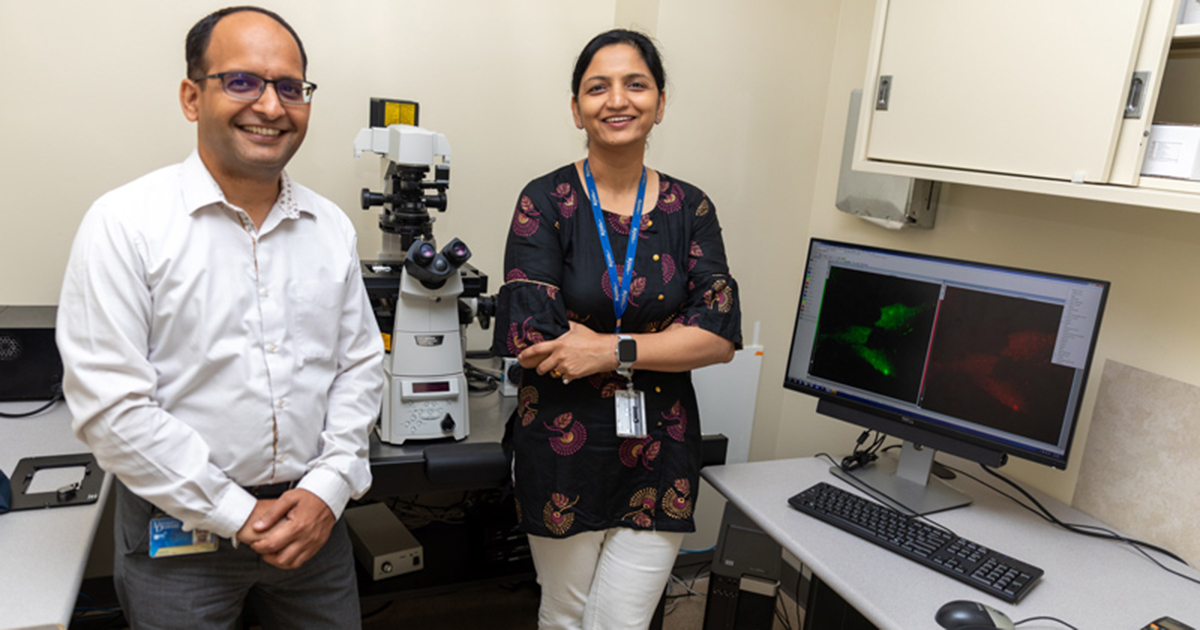
Category: Medical & Molecular Sciences

How cells communicate
August 21, 2023 Written by Amy Cherry | Photo by Ashley Barnas
UD molecular biologist, colleagues receive NSF grant to enhance understanding of cellular communication
For a long time, extracellular vesicles (EVs) were often thought of as garbage bags containing a myriad of materials that cells don’t need.
But scientists have since learned that EVs are instrumental in various biological activities from homeostasis and cell-cell communication to cancer progression. University of Delaware molecular biologist Mona Batish likened them to FedEx envelopes.
“They’re addressed envelopes containing handpicked materials with specific addresses they go to; this is a way cells talk to one another,” Batish said. “For example, if a cell got infected with a virus, it would release material into EVs, which will be taken up by neighboring cells, so they’re prepared when the virus reaches them.”
Cancer can hijack the process of packaging EVs.
“It starts sending material into the packages and tells the immune response, ‘Nothing is wrong,’” Batish said. “That’s how cancer silently grows until a tumor becomes so big the body cannot do anything about it.”
EVs carry a range of cargo, including proteins, lipids, and nucleic acids like DNA and RNA.
Past research has focused on understanding the synthesis and release of the EVs from the cell, but little is known about how RNA cargo is sorted, packaged, and transported into EVs. Batish has been awarded a $1 million grant from the National Science Foundation to study the mechanism of RNA sorting, packaging, and transport into EVs. Vijay Parashar, assistant professor of medical and molecular sciences, and Shawn Polson, associate professor of computer and information sciences and director of UD’s bioinformatics core facility, are co-investigators on the NSF grant.
“My interest is in examining RNAs in EVs because RNA packaged into an exosome can go into another cell and make a protein, and that protein can change the behavior of the recipient cell,” Batish said.
